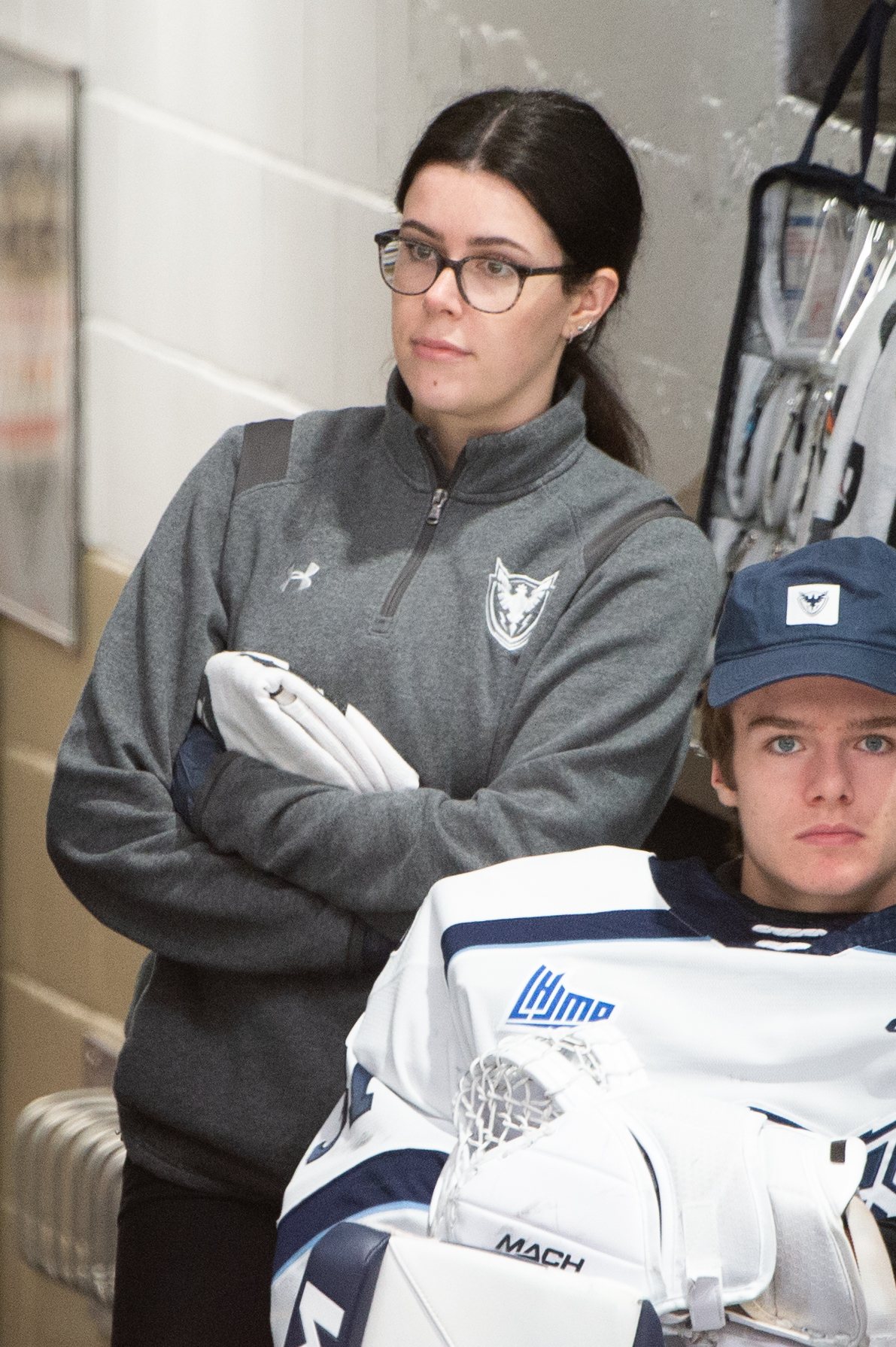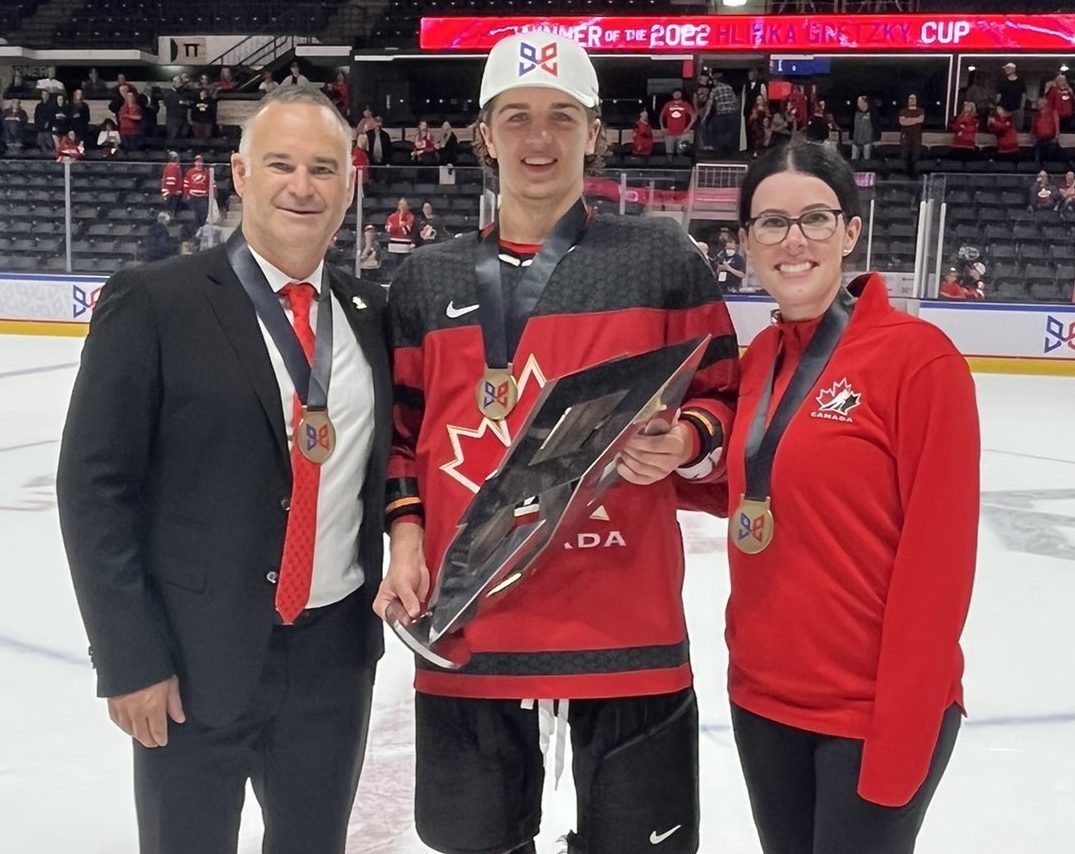ICE HOCKEY. In certain respects, the Quebec Major Junior Hockey League (LHJMQ) is sometimes ahead of the National Hockey League (NHL). This season, almost half of the sports therapists in the Courteau circuit are women. No one is currently seated behind a bench within the Bettman Circle.
With the Drummondville Voltigeurs, Émilie Croteau is enjoying her first campaign in the heat of QMJHL action. In the Sherbrooke Phoenix, Drummondvilloise Lucie Grandmont plays the same role, having started her career in the Rouyn-Noranda Huskies organization. The two women quickly found their place in the typically male environment of big junior hockey.
“Regardless of the environment, at the end of the day we are health experts. We are 100% qualified and doing our job. I would add that the guys are super respectful. It’s not a barrier. On the contrary, it is an enrichment to be a woman in this environment,” says Émilie Croteau.
For her part, Lucie Grandmont admits to being a little tired of having to address this issue. “I’ve been in the league for almost ten years. Before me there were women in the QMJHL. At the same time, I understand that not everything will be settled in 2022. There are no women in the NHL. We need to continue this dialogue. I like doing it, but it’s not an issue for me,” she says, noting that eight of the 18 sports therapists at the QMJHL are women.
To work under pressure
Holders of bachelor’s degrees in sports therapy from Concordia University, Émilie Croteau and Lucie Grandmont play an essential role in the physical preparation of the players, in addition to providing care for injuries. Whether it’s during a game or a training session, they need to be on constant alert to intervene as first responders. To do their jobs well, they need to know how to keep their composure no matter how serious the situation.
“That’s what appeals to me about this job,” says Émilie Croteau, who is also doing her master’s degree in this discipline. You have to think fast, sometimes three steps ahead. You must be able to make quick decisions. In an emergency, you don’t have time to take your books on the ice! You have to know a lot of things, make a decision and move on.”
Lucie Grandmont had been in just such a situation since her beginnings in the QMJHL when the Huskies’ Jérémy Lauzon suffered a deep laceration to his neck after being hit by a skate blade. “That was the most pressing situation I had to deal with. It wasn’t necessarily difficult, but it was pretty urgent,” the 30-year-old recalls.
In addition to this high-pressure work, sports therapists then accompany injured athletes through their rehabilitation. A journey that is sometimes protracted and often fraught with pitfalls. “There is nothing quite like seeing an injured player, whom you have guided through all stages of his rehabilitation, come back to the ice and perform. It’s like icing on the cake,” explains Lucie Grandmont, who was part of the Huskies’ Champion Editions in 2016 and 2019.
Among the voltigeurs, Émilie Croteau contributes to this long-standing work Justin Cote, Maveric Lamoureux and Riley Mercer. The three 18-year-old players underwent surgery, which required a lengthy recovery. “We’re taking it day by day, but it’s progressing well. We can’t wait for their return to the game, as it’s my first year here I haven’t seen Justin and Maveric play. I can’t wait to see them in action in a game,” said the 29-year-old woman from Saint-Polycarpe.
A special attitude towards life
The two health professionals particularly appreciate the family spirit that prevails within an ice hockey team. Through the heat of games, practice sessions and bus rides, strong bonds are forged between members of the group.
“It’s a very special way of life. That’s not for everyone, emphasizes Lucie Grandmont. The fact that we always work with and spend so much time with the same people literally becomes our second family.

The latter feels blessed to be able to socialize with these young people between the ages of 16 and 20. “It’s a pretty crucial phase in a person’s development. We help them to develop both as hockey players and as people and citizens who will later have to act in society.
Dedication, willingness to learn, patience, listening and empathy are among the most important qualities required to practice this profession and also emphasize the importance of teamwork.
“Communication between everyone has to be fluid,” explains Lucie Grandmont. It is important. In the event of an injury, we are the link between the player, the health professionals, be they doctors, orthopedic surgeons or others, as well as the coaches or the managing director. We are the center.”
“We are a big machine. Everyone has a small role to play in making everything work, adds Émilie Croteau. It’s important that everyone does their part and that we work together to achieve the ultimate goal, which is the athlete’s return to play.
Émilie Croteau, who touched on almost every sport during her studies, believes that the QMJHL is one of the most rewarding environments to pursue the profession. “It’s an important level for athletes’ development and very crucial for their future careers. We can use the full range of our skills. By being around players almost 24 hours a day, seven days a week, we really have an impact on their overall development. We can touch several facets. We can help them on their journey, both as athletes and as individuals.”

For her part, Lucie Grandmont is also involved with Hockey Canada. Last summer she was also part of the Canada U18 team champion the Hlinka-Gretzky cut played in Red Deer, Alberta. “At some point I would like to take part in a junior world championship. For me it would be the culmination of my ice hockey career.
Today, women in this field can afford to dream of the professional ranks. Last season, Aisha Visram became the second woman to work as an NHL sports therapist during a Los Angeles Kings game. Between 2002 and 2006, Jodi van Rees was a true pioneer with the Montreal Canadiens.
“When I started in the business, I didn’t really see an opportunity to move up. Today I see that there would be opportunities,” concludes Drummondvilloise.

Award-winning entrepreneur. Baconaholic. Food advocate. Wannabe beer maven. Twitter ninja.






